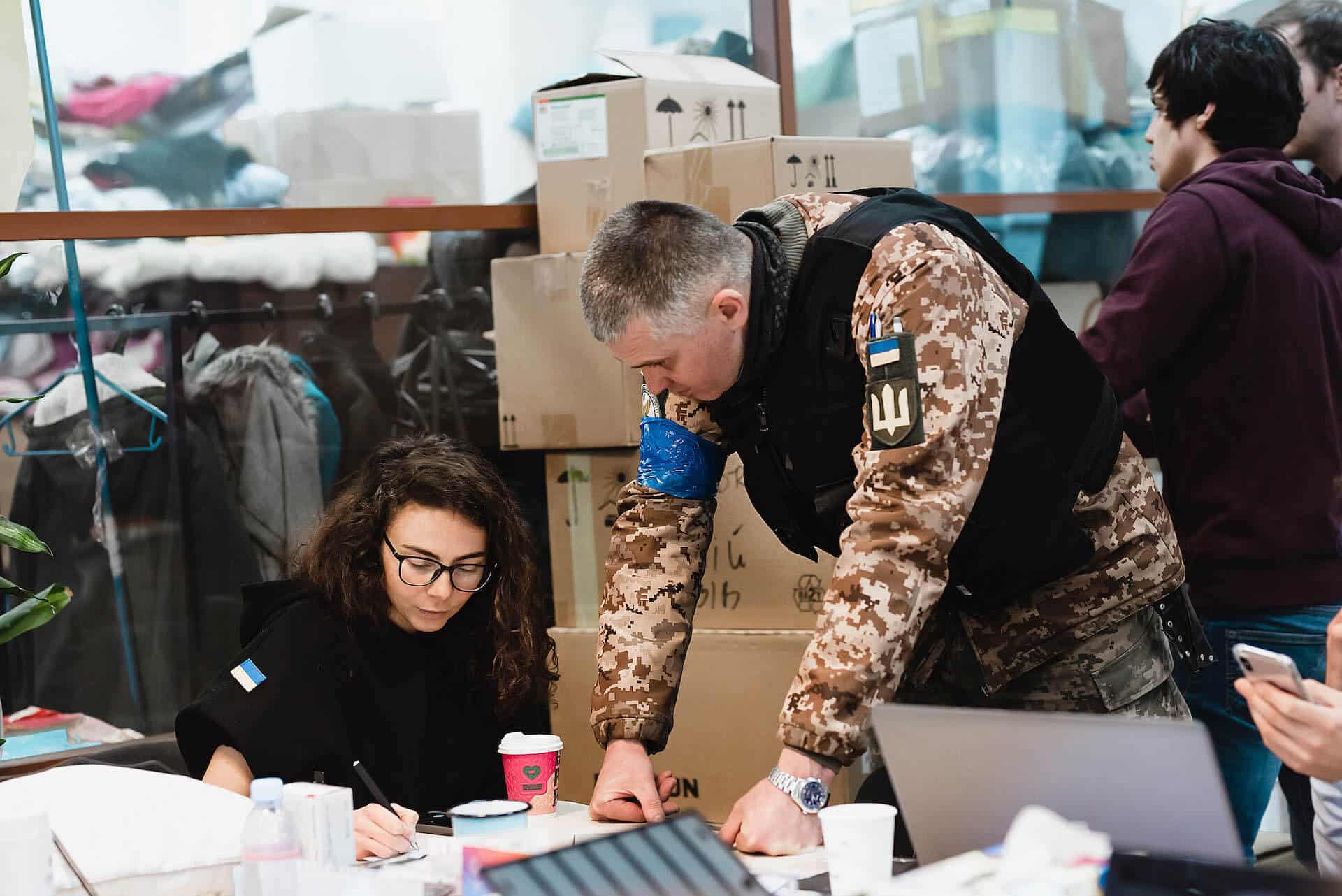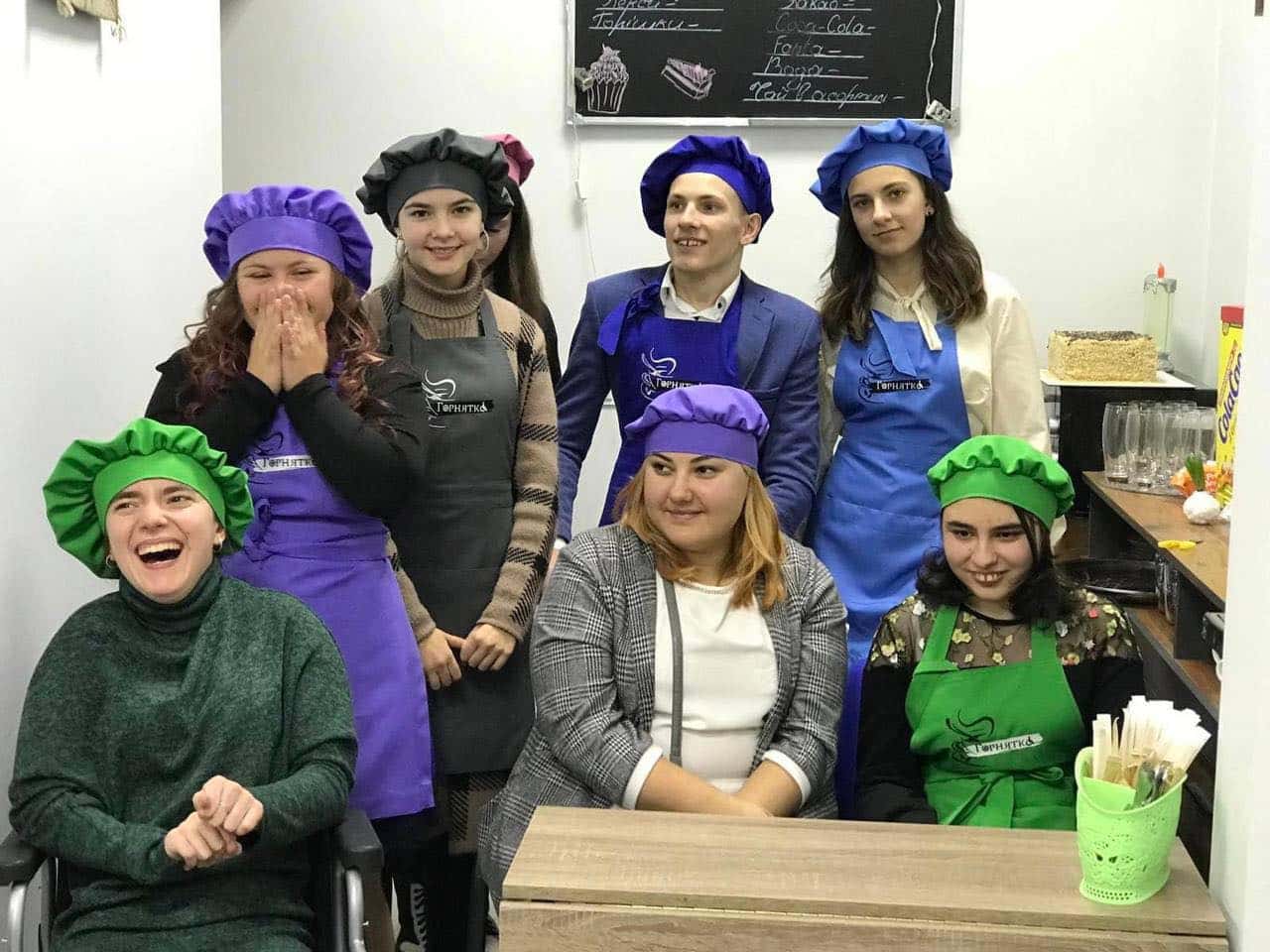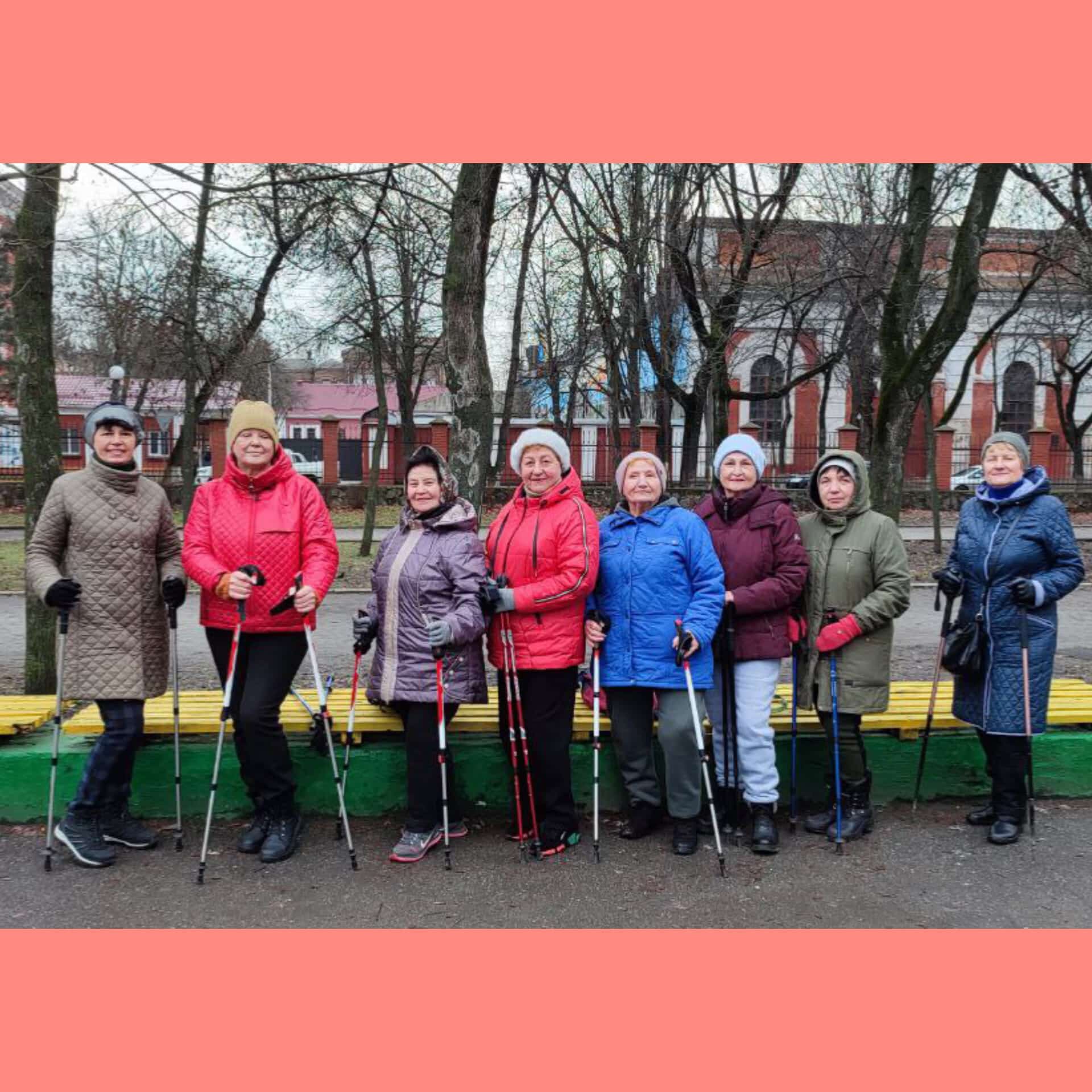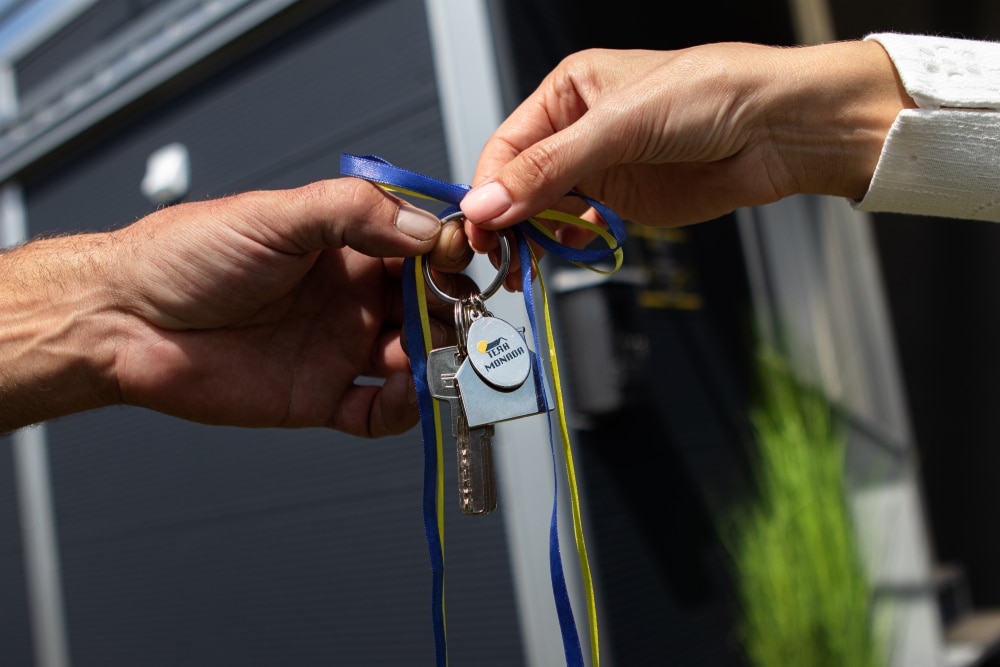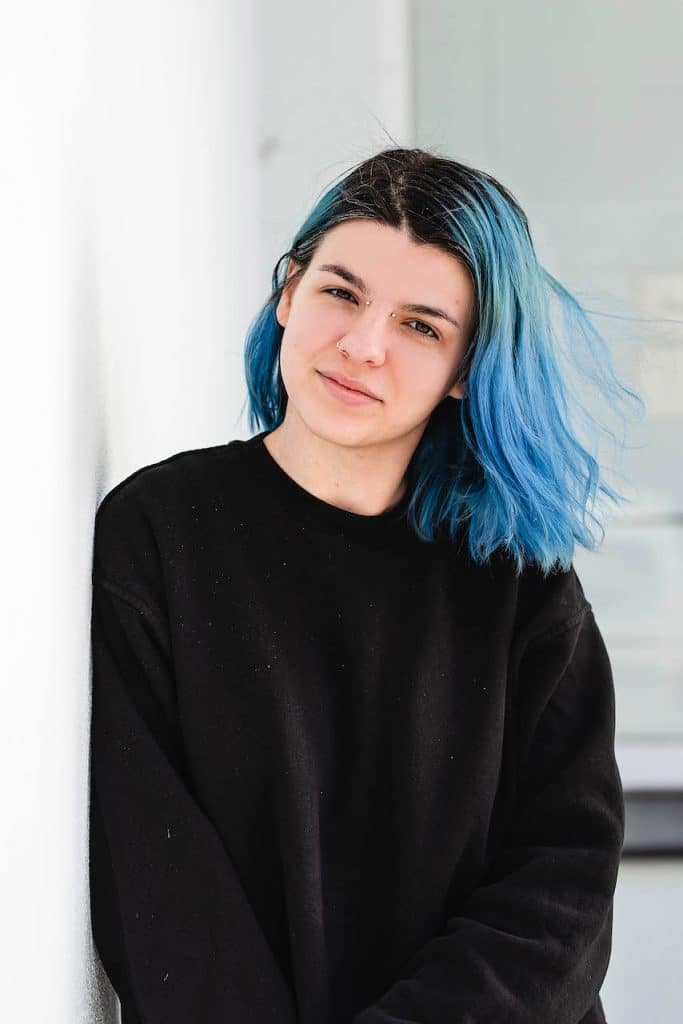
War has changed each of us. Within a short period of time Ukrainians, who have become volunteers, have learned to stay awake for several days in a row, communicate with international suppliers and reach goals without money while hunting anything down that may be helpful for the army and civilians. Media of Great Stories spoke to Olya Kryvitchenko who teaches philosophy at university and the Kyiv Academy of Media Arts (hereinafter: KAMA). She is now dealing with military ammunition which helps to save lives at the organization ‚Zgraya‘ (the Ukrainian for ‚flock‘ or ‚pack‘ – translator’s note). She told us not only about her volunteer experience and the activities undertaken by the organization, but also about how philosophy helps her volunteer.
LIFE BEFORE
Before the war (just as at present) Olya worked as a senior lecturer at the National Medical Academy of Post-Graduate Education Named After P.L. Shupik. There she delivered lengthy lectures about countering violence in families, humanitarian basics of clinical thinking, bioethics, etc. She concurrently taught a critical course on philosophy for designers, creatives and artists at the KAMA. Aside from that, last fall she was to have taken her PhD degree at the Taras Shevchenko University in Kyiv.
,Volunteerism has become for me a sort of a breath of fresh air since I have quite actively been working on my PhD thesis since 2019. This is mostly a very ascetic endeavor featuring only you and your laptop. It is something that is done in big labs where there is a community of people. So, volunteerism means going back to a big team. The problem with scientific papers is that you do not see the result of your work instantaneously. You spend months on writing an article while it takes you 4 or even more years to obtain your PhD degree. In volunteerism it’s the other way around – you see the results of your work and you are thanked literally after 2-3 days or even after 15 minutes. Unfortunately, the same is not true for scientific work in Ukraine’.
Prior to volunteering at ‚Zgraya’ Olya did not sit idly by. She did waste sorting, participated in subbotniks (a day of volunteer unpaid work on weekends – translator’s note) organized by the public organization ‚My Kyiv‘, joined campaigns aimed at raising funds for children suffering from spinal muscular atrophy. She was also going to head the department for social responsibility at one of Kyiv institutions.
THE BEGINNING OF WAR
On February 24 Olya was staying at her relatives’ place in the town of Nadvirna located in the Ivano-Frankivsk oblast.
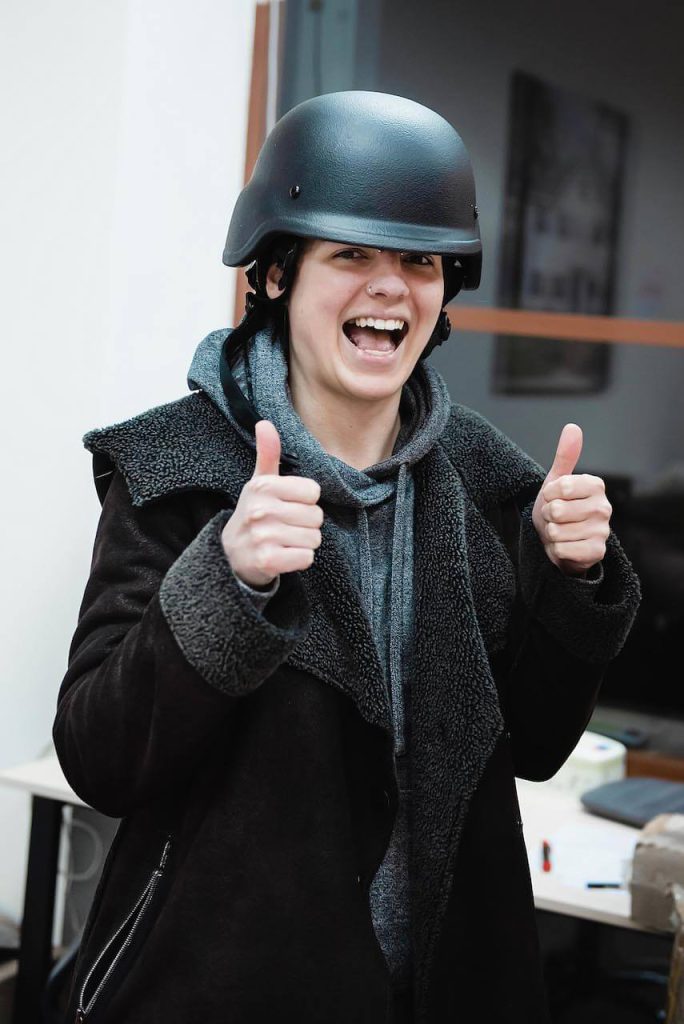
‚I had a bad dream. I was walking my pit bull terrier down Saksahanskoho street in Kyiv. All of a sudden a zombie apocalypse breaks out and I need to run for shelter, but with a dog on a leash I can be easily spotted and I can’t reach shelter. I remember waking up to the loud sound of TV. I came up to my neighbors to ask what was going on. They told me that Kyiv was being bombed’.
The first two days were kind of a blur. However, after a short while Olya started helping others by connecting people who were trying to evacuate. She joined other non-volunteer initiatives. She searched for people who could deliver things to other places, she was also a fixer. Olya stayed in touch with Zhenya Talinovska, one of the co-founders of the organization ‚Zgraya‘. Apart from that, Zhenya runs the foundation ‚Everyone can‘ on an ongoing basis. The foundation takes care of children with different disabilities, internally displaced persons and the elderly. Therefore, when Olya was searching for someone having an expertise in this area, she would go to Zhenya. Olya then asked her whether ‚Zgraya‘ needed someone to work permanently with the organization, which led her to become a member of the team.
VOLUNTEER DUTIES
“This is not a classical 9-to-5 job. This is something you do almost round the clock. Thank God people stop writing to you at about two in the morning. My regular day begins somewhere at 8 am when a military unit in, say, Fastiv (a city in the Kyiv region – translator’s note) feels like enquiring about the request they sent me about two weeks ago for some fantastic amount of equipment needed to defend the country. I then start receiving incessant calls while abandoning any hope of another few hours of sleep. I check my chats and then head to the staff. Since I am concurrently teaching at the university, I may also deliver online lectures, which means that while giving a lecture I constantly check my chats so as not to miss something really urgent.
Sometimes I need to collect things. For instance, today I collected tourniquets which we have been delivered from Poland. I then arrived at our warehouse, sat at the computer and checked urgent requests. They are different, from ‚we need a shovel‘ to ‚we urgently need a car for our intelligence unit‘ or ‚we need 25 helmets for helicopter pilots‘. And then a second passes until I receive another request for, say, a boat.”
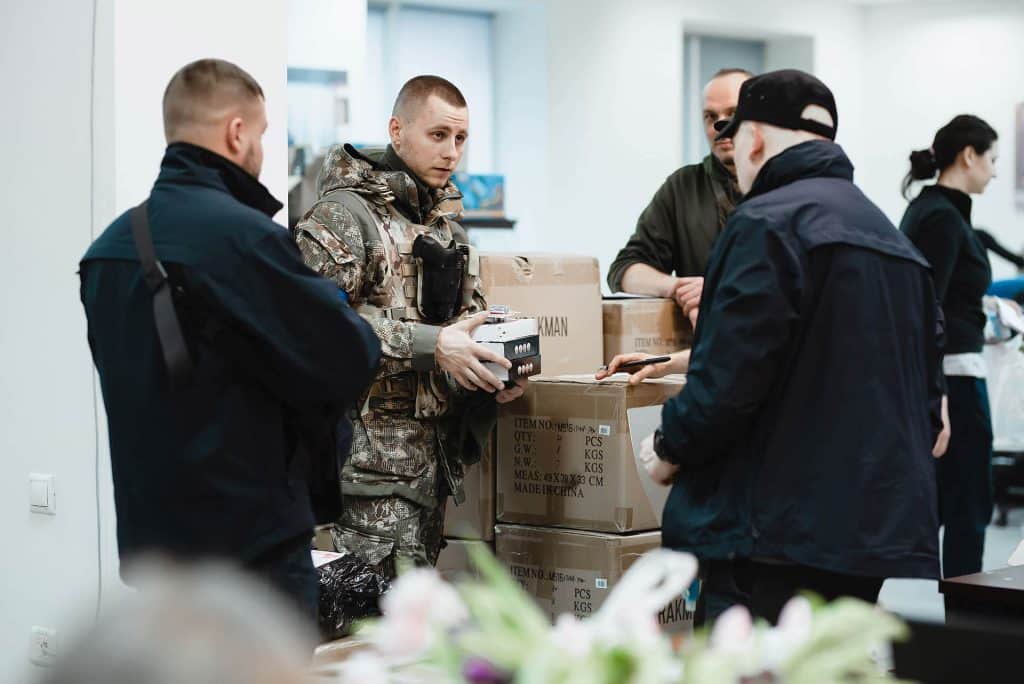
Olya takes care of requests submitted by the military while also raising funds for their needs. However, ‚Zgraya’ engages in various activities. For instance, the organization provides help for civilians and animals that have been evacuated by volunteers from dangerous zones.
Olya places orders on ammunition from all over the world. There was a time when bulletproof vests arrived from Columbia, collimators and thermographic cameras were delivered from Germany, while night vision devices came from Poland. The girl is now waiting for a delivery from Vietnam which has been sponsored by the Ukrainian diaspora. Many deliveries are being made from Turkey, however, Bulgarian customs officers often conduct thorough inspections of trucks carrying these cargoes. There are, however, not many companies selling helmets for helicopter pilots. One of them has its headquarters in New Zealand. Australia may be the only country where Olya has not ordered anything yet, since the logistics are quite complicated.
HER OWN MOTIVATION
‚First of all, volunteerism alleviates your anxiety. My relatives evacuated from Kyiv on February 25. Since their work was halted and they were laid off, they began to drive themselves crazy, to read the news, etc. When you feel that you no longer have the situation under control and that you don’t have a sense of participation, it is much more traumatic to live through such a difficult experience. Moreover, I still have this feeling of guilt for the year of 2014 when the Russia-Ukraine war had just broken out. Back then I chose life, not war. I spent a few months searching for ammunition, but at the same time I had to dedicate time to my diploma and I left off volunteerism. The thought that automatically crossed my mind this time was ‚No! This time I will not withdraw from the race that easily‘.
In other words, none of my nearest and dearest or friends had previously joined the Armed Forces of Ukraine and there was no need to urgently provide them with equipment and military uniform. On the contrary, my boyfriend and I had prepared kits in case a full-scale war would break out. We had packed up our first aid kits, tourniquets, tactical gloves, knee pads, earwigs, glasses, bulletproof vests, helmets, thermal clothing, socks, sleeping bags and pads, even special hermetic bags, etc. My boyfriend had a full uniform. All of my relatives were safe. I mean I had no personal motivation. Basically, I was quite privileged to not be afraid for my own life and for the lives of my nearest and dearest. I was able to start volunteering 24/7’.
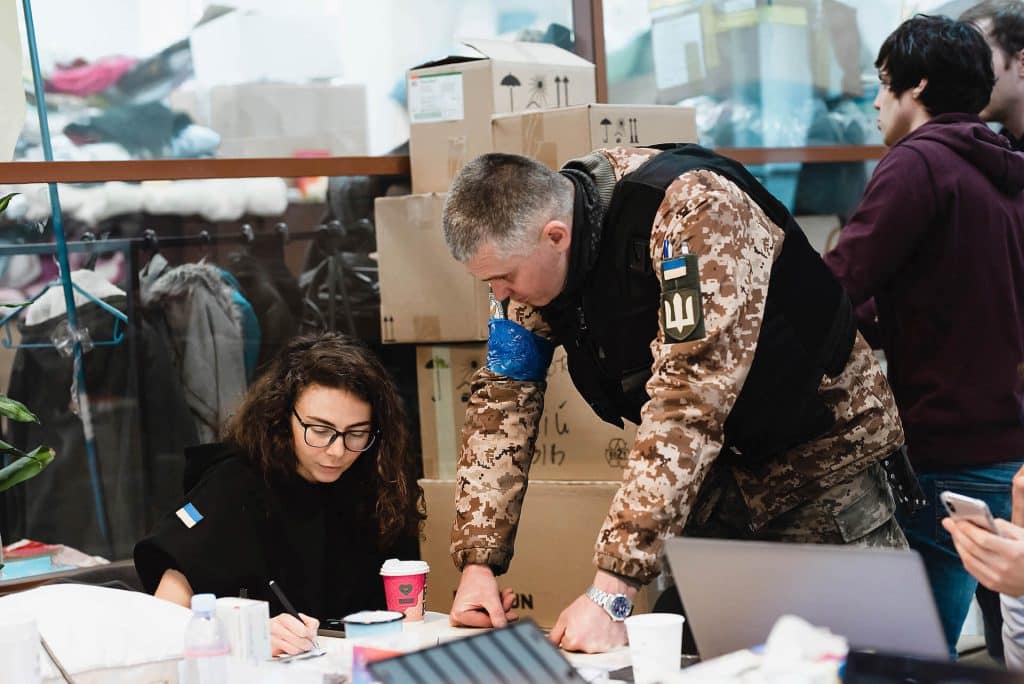
ABOUT ‚ZGRAYA’
‚Zgraya’ has been operating since the Revolution of Dignity when the war started. Oleksii Yudkevych, who is one of the co-founders, went to war. In 2014-2015 the organization was actively helping our army fighting in the East. It was doing the things we are actually doing right now, the difference being that back then equipment was sent only to military units stationed in the Donetsk and Luhansk regions. Then the scope of our activities declined for some period of time. In 2020 when fierce fire swept through the territory where the Chornobyl nuclear power plant is located, members of the organization got together to provide our state emergency service people with everything they needed, from shovels to food.
On February 24 our staff convened once again and active operations followed. Our team has grown quite fast. We have 30 coordinators alone and over 300 drivers who do deliveries in Kyiv and in the Kyiv region. We have also started developing a program called ‚good neighboring‘ aimed to deliver necessary food products and medicines to older men and women, people with disabilities and multi-child families. We manage this program alongside a charitable foundation ‚Enjoying Life‘ that supports people of advanced age. In all likelihood, this program will continue to be implemented after the war.
After these two months ‚Zgraya’ has achieved stunning results. For example, 1000 people have been evacuated by our team from Chernihiv. We have also set up our own shelter for dogs and cats that were evacuated from the once occupied territories. We have managed to raise several million hryvnia (one million UAH is roughly equal to 34 thousand USD – translator’s note) for ammunition for our army. We have purchased vacuum assisted closure devices for hospitals thanks to the assistance offered by the charitable foundation ‚Tabletochki’.
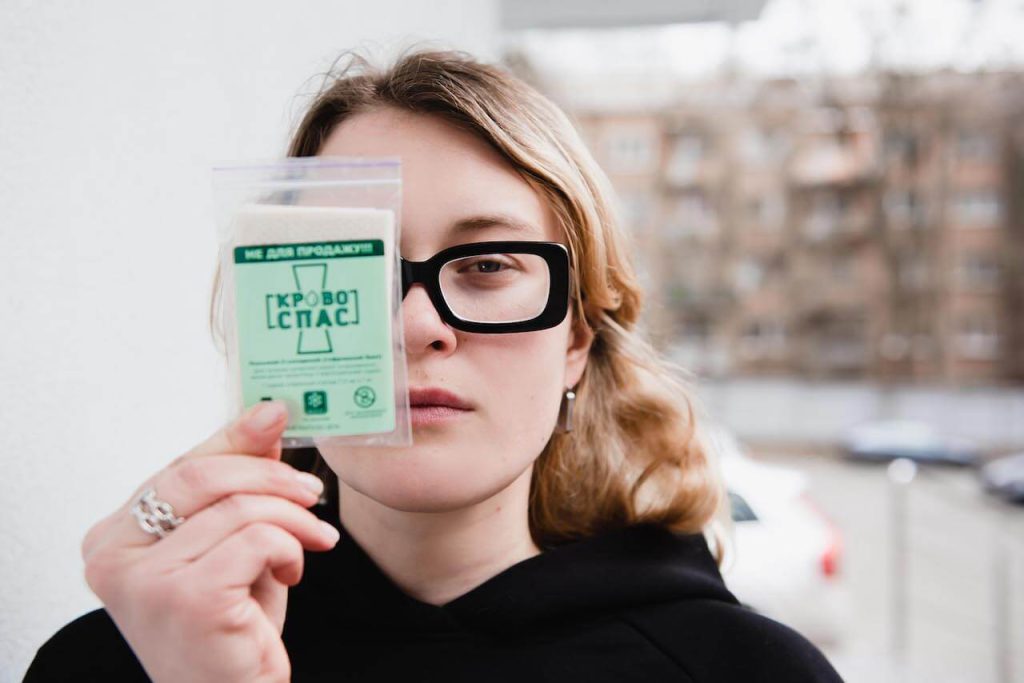
‚I have purchased an unbelievable number of thermographic cameras. I have simply lost count of them. We have also managed to have many ambulances delivered to cover ‚Zgraya’s‘ needs. One evacuation car has been used in Chernihiv (it is now serving in the East) and in the Kharkiv region. Other ambulances are covering the needs of hospitals in the city of Dnipro and of the military. We have also purchased some cars for the military. One of the requests which I managed to handle the quickest (and which was the most challenging in terms of logistics) was buying a boat. The boat was in Dnipro while I was in Kyiv. In the morning guys from the military took it and in the evening they were already using it while fulfilling their military tasks. We are also opening our second headquarters in Dnipro in order to be closer to the frontline’.
HOW PHILOSOPHY HELPS IN VOLUNTEERISM
‚There is a lot of red tape in my work – permits, communication with the administration in military units, papers that have to be prepared for the customs office, work with the General Staff and deliveries that are constantly halted. IT and business people, who also buy things for the military, are not accustomed to this. Those people who have never visited a housing bureau and who pay their bills online may find it challenging to understand this system. Ukrainian reality is very good at teaching you a lesson that even a trivial thing requires some written permit, the purpose of which can hardly be understood. This is a very good school. Even if you have never worked with the foundation and you are faced with the task of obtaining a certificate of transfer and acceptance, you will have a perfect understanding of how to proceed.
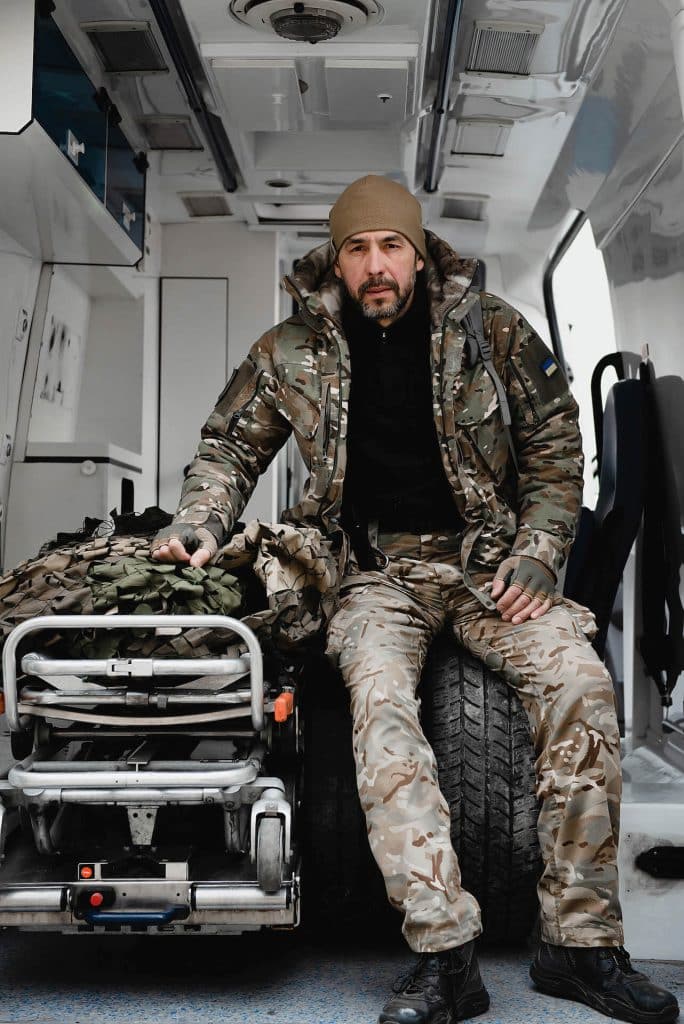
You don’t have to read millions of books on successful entrepreneurship and management to build and fine-tune operations having a degree in philosophy or to quickly identify their weaknesses. Apart from that it is important to have a skill of communicating with people and of understanding that on the other end of the line your interlocutor is not necessarily always a rational person. They may have their own values and worldview. My profession applies a priori that my interlocutor will have a totally different outlook on different categories like time, speed and understanding.
Besides critical thinking I also teach cognitive theory and cognitive distortion, which is why I understand perfectly well the detrimental effect of tight deadlines on the quality of the decision-making process and on just how badly thought-out decisions one may take when being pushed by someone else. This works well when you need, for example, to buy something that I have a vague understanding of. If I deal with aid for the army, sooner or later I will encounter such a situation and such people who will want to push armor of poor quality on me. Knowledge of how you should make decisions in the context of uncertainty saves you from making further mistakes.
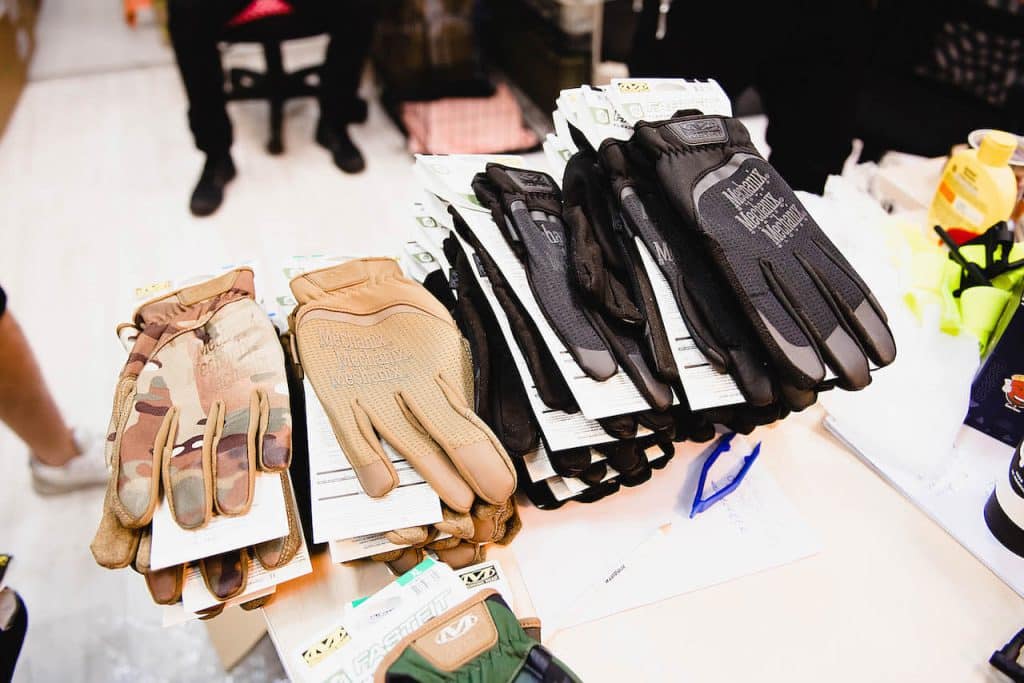
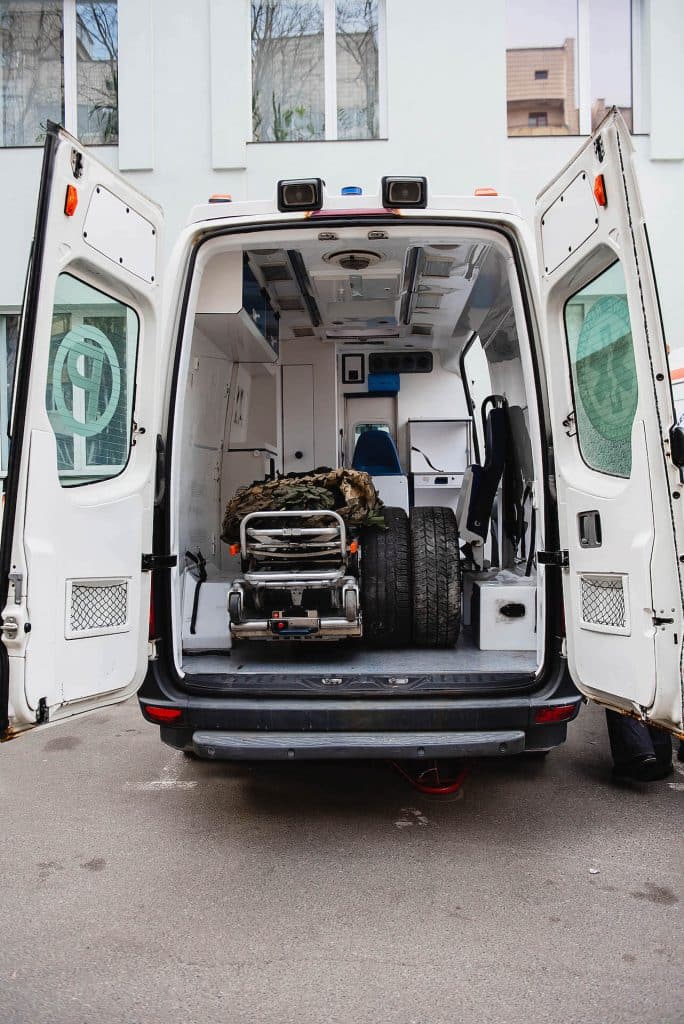
Philosophy helps cope with the absurdity of the situation, since war in itself is absurd. Philosophers discovered the absurd and banal nature of evil back during WWII. They found out that there are no universal human values that would protect mankind from mass murders and war crimes; that the latter are committed not by some devils incarnate but by ‚little people‘, like your neighbors living in a next-door apartment or in a country bordering yours. Philosophy teaches you how to act in an ethical manner when there are no absolute values (take the example of project ethics when a person threats themselves as a project), how to find meaning of life with all these horrors around you (for example, Viktor Frankl, who lived through concentration camps, refined the theory of logotherapy aimed at healing people through their search for meaning).
On the whole philosophy helps you keep afloat, for example, to cope with burnout. In principle, everyone who has been involved in the area of psychotherapy is more or less prepared for this. The rule ‚first wear the mask yourself and that let others do it’ is especially important for volunteers. Philosophy works the same way by providing you with a framework for values and the ability to handle absurdity and unbearable character of the situation as much as possible’.



